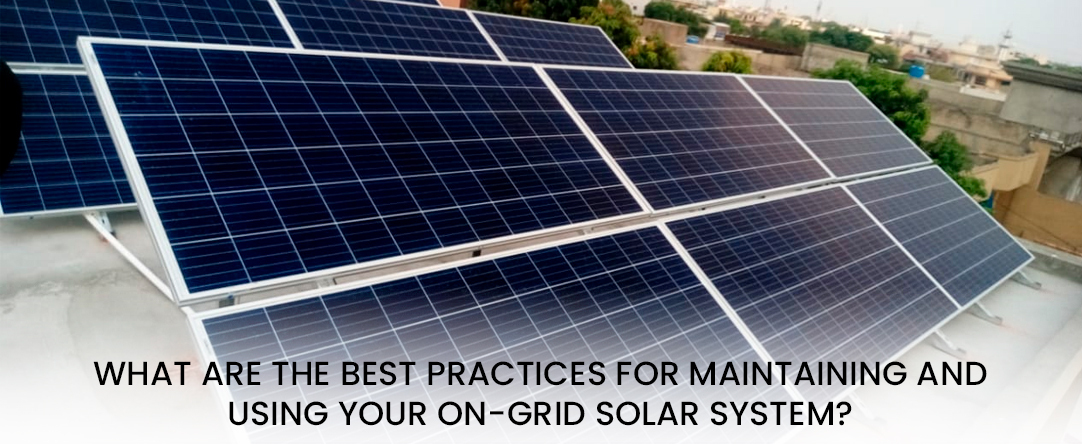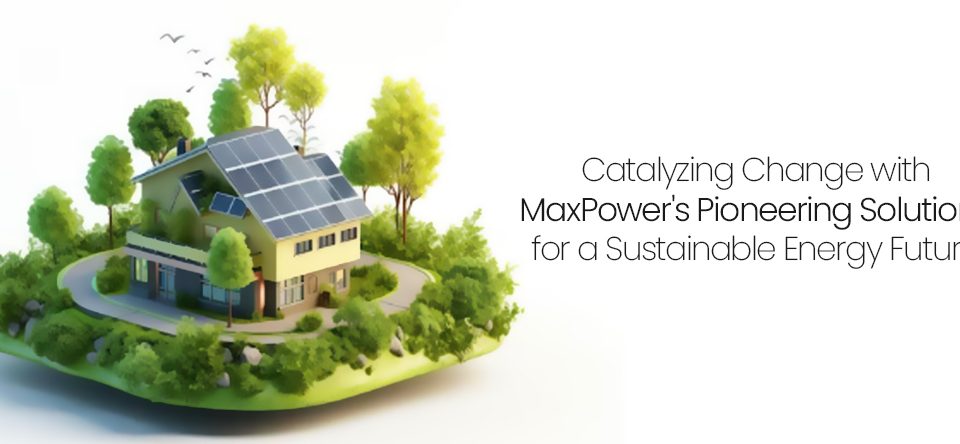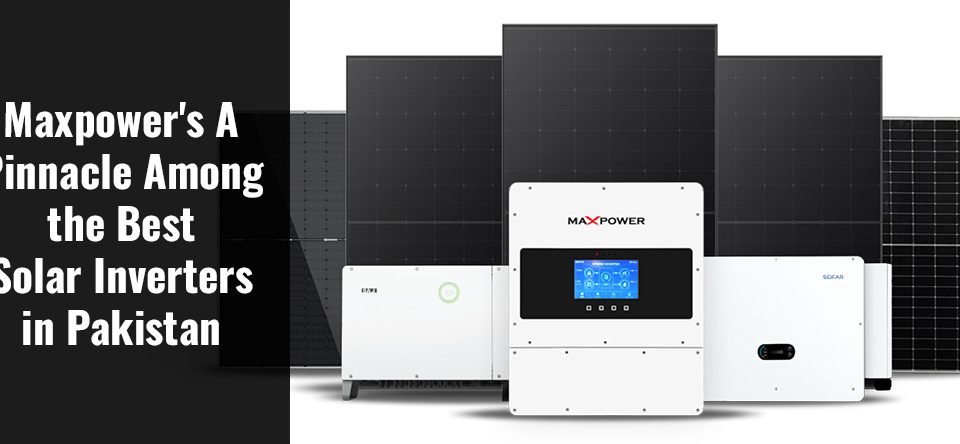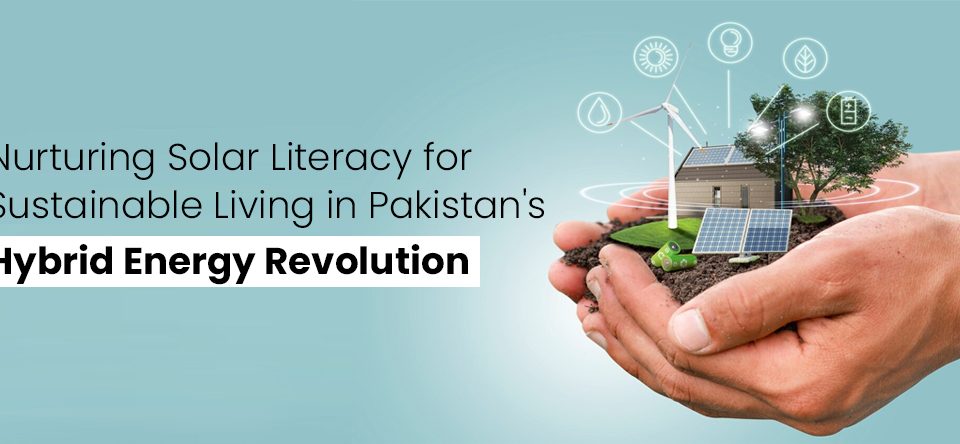
Benefits of Residential Solar Energy Solutions in Pakistan
January 26, 2023You can save money and lessen your carbon footprint by installing an on-grid solar system. You don’t have to worry about storage space or maintenance; you plug it in and reap the benefits of clean energy production. But while having an on-grid system has a lot of advantages, it still requires some upkeep if you want to get the most out of it.
In this blog post, we explore the best practices for maintaining and using your on-grid solar system. From regular inspections to battery maintenance and more, read on to learn how to ensure your system runs at peak efficiency for years to come.
Best practices for maintaining your on-grid solar system
Here are the best practices:
- Check your system regularly – At least once a month, check your solar panels and equipment for dirt, debris, or snow build-up.
- Keep an eye on your inverter – Your inverter is the heart of your solar system, so it’s essential to keep an eye on its performance. Check the display regularly and make a note of any error messages.
- Get professional help when needed – While you can do some basic maintenance tasks yourself, getting professional help is essential. Call a qualified solar technician if you’re having trouble troubleshooting a problem or don’t feel uncomfortable working on your system.
- Stay current on recalls – Solar panels and other equipment can be recalled just like any other consumer product. Stay up-to-date on recall notices and follow the instructions if a recall affects your system.
How to maintain your on-grid solar system
Assuming you have an on-grid solar system, there are a few best practices to follow to maintain your system and get the most out of it. First, check your panels and clean them off if needed regularly, ensuring they can function at peak efficiency.
Additionally, inspect your system’s wiring and connections periodically to ensure everything is secure and tight. You’ll also want to monitor your home’s energy usage and monitor how much solar power you’re producing; if you notice any changes or irregularities, it could indicate a problem with your system.
Finally, be sure to contact your solar company or a qualified technician if you ever have any concerns or questions about your on-grid solar system – they can help troubleshoot any issues and keep your system running smoothly.
Best practices for using your on-grid solar system
Assuming you have an on-grid solar system, there are a few best practices to follow to ensure its longevity and optimal performance.
First, have your system regularly serviced and cleaned by a professional. This will help to prevent any dirt or debris from building up and blocking the sun from reaching the solar panels.
Secondly, be mindful of what you connect to your system. Any equipment or gadgets that consume a lot of electricity will tax your system and make it less effective. So, it’s best only to connect items that you need.
Finally, monitor your usage and keep an eye on your energy bills. Doing this can change how you use power during peak times or periods of high usage. This can help you avoid any issues with your solar system and reduce electricity costs.
What to do if there’s a power outage
If there’s a power outage, you should first check your fuse box or circuit breaker to see if the problem is on your side of the grid. If everything looks fine there, the outage is likely due to a problem with the utility company or transformer. In either scenario, you should get in touch with your utility provider to report the outage and learn when it is anticipated that power will be restored.
In the meantime, there are a few things you can do to minimize the impact of a power outage on your solar system:
- Disconnect any non-essential appliances and electronics from the grid. This will help reduce the load on your system and make it easier for your inverter to keep up with demand.
- Make sure your batteries are fully charged. You’ll have enough power to last through an extended outage.
- Use caution when operating any appliances or electronics connected to your solar system. Avoid using high-powered devices like hair dryers or space heaters, as they could overload your system.
On-grid solar system FAQs
How much does an on-grid solar system cost?
The cost will vary based on the size and location of the system.
What are the benefits of an on-grid solar system?
Your electric cost can be reduced with an on-grid solar system, which also serves as a backup power source in the event of a power outage. On-grid systems are also low maintenance, as they do not require batteries or other costly maintenance items.
What are the best practices for maintaining and using your on-grid solar system?
To get the most out of your on-grid solar system, it is essential to have it professionally installed by a qualified technician. Once your system is installed, be sure to monitor it regularly to ensure that it is operating correctly. If you notice any problems, contact a qualified technician for assistance.
Final Thoughts
An excellent approach to save money and lessen your carbon impact is to use and maintain an on-grid solar system. Following the best practices outlined in this article will ensure that your system is performing optimally, saving you money and helping the environment. With proper maintenance and use, an on-grid solar system can provide years of reliable service at little cost to you or the planet.




